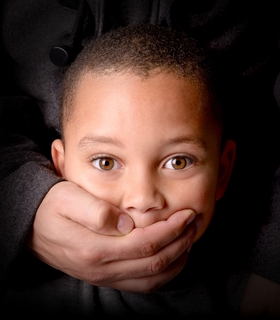Article at a Glance
- Signs of child abuse include unexplained injuries, depression, anxiety, disinterest, and developmental regression.
- If you think that a child is being abused, contact the police or local child protective agency right away.
- If a child discloses abuse, let the child know that you are listening and that you believe him or her.
Child abuse is much more prevalent than most of us realize. Without an adult’s help, children have nowhere to turn for protection or to get the resources they need to recover. Understanding what to look for and how to report any suspicions will help you respond quickly if a child needs you.
Last year during National Child Abuse Prevention Month we covered sexual abuse and how to prevent it. This year we would like to focus on one of the most common forms of child abuse—physical abuse.
Signs of physical abuse
- Unexplained injuries
- Depression or anxiety
- Changes in behavior
- Reluctance to go home
- Loss of interest in friends or other activities
- Disinterest in school and frequent absences
- Rebellious behavior
- Suicidal thoughts or actions
- Desperate desire for attention or affection
- Developmental regression
Get help fast
If you think that your child or another child is being abused, contact the police or local child protective agency right away. Waiting will not make things better, only worse, and will decrease the child’s chances for recovery. It’s easy to feel like it isn’t any of your business or that maybe somebody else will step in. But these children need your help and there is a good chance that you are the only adult who can help them.
How to report child abuse
If a child reports abuse to you or if you notice signs of abuse:
- Remain calm and encourage the child to tell you what happened, but don’t ask any leading questions. You can leave the detailed interviewing to the professionals.
- Let the child know that you are listening and that you believe him or her.
- Let the child know that it is not his or her fault.
- Report the abuse to the police department immediately. If it happened at school, make sure the principal knows too.
- Make sure the child gets any needed medical care immediately.
- Be sure the child is safe by separating him or her from the abuser. Let the child know that he or she is safe.
More information:
Child abuse – a hidden epidemic
National Child Abuse Prevention Month and Sexual Assault Awareness Month
Protecting our children from sexual abuse
Share this article:
